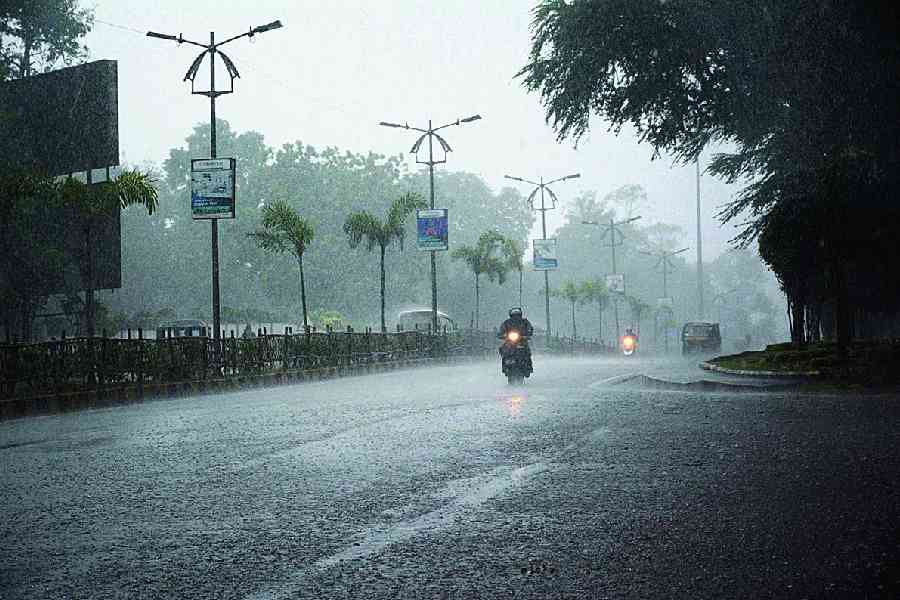A storm from India’s west and moisture from the Arabian sea will “very likely” bring rain, thunderstorms, wind and hail across parts of northwest India over the next three days, the national weather agency said on Monday, urging precautionary steps.
The India Meteorological Department (IMD) has predicted “fairly widespread” rain with thunderstorms, lightning, and gusty winds over northwest India until May 31.
A “very likely” forecast from the IMD implies there is a 50 to 75 per cent chance of the predicted weather. A “fairly widespread” forecast means a 51 to 75 per cent of the weather stations in the region will experience the predicted weather.
Hailstorms are very likely at “isolated places” across northern Rajasthan, Jammu, Himachal Pradesh, and Uttarakhand, the IMD said. It said heavy rainfall is very likely in isolated places in Jammu and Kashmir and Himachal Pradesh on Wednesday. A forecast saying “isolated places” implies less than 25 per cent of the weather stations will experience the predicted weather.
“We’re seeing the impacts of Western disturbances over the past week and moisture from the Arabian sea,” said Rajendra Jenamani, a weather scientist with the IMD, New Delhi. A Western disturbance is an eastward moving storm that originates from west of India close to the Mediterranean sea.
Under their influence, Jenamani said, temperatures in many parts of northwest India such as Rajasthan and Delhi have been below normal over the past three to five days. The IMD said it does not expect any significant change in the maximum temperature over the northwest during the next four days.
But the maximum temperature in the northwest could rise by 2 to 4 degrees after Thursday, while eastern India and Maharashtra are expected to experience a 2 to 4 degrees rise in their maximum temperatures over the next five days.
The IMD, in advisories linked to its forecast of thunderstorms or hailstorms in Rajasthan, Jammu and Kashmir, Himachal Pradesh and Uttarakhand, said people should stay indoors, should not take shelter under trees and should not lie on concrete floors or lean against concrete walls. It said people should get out of water bodies during such weather events and stay away from all objects that conduct electricity.
The agency also said hail may damage plantations, horticulture or standing crops and has urged the deployment of hail nets to protect any orchards.











